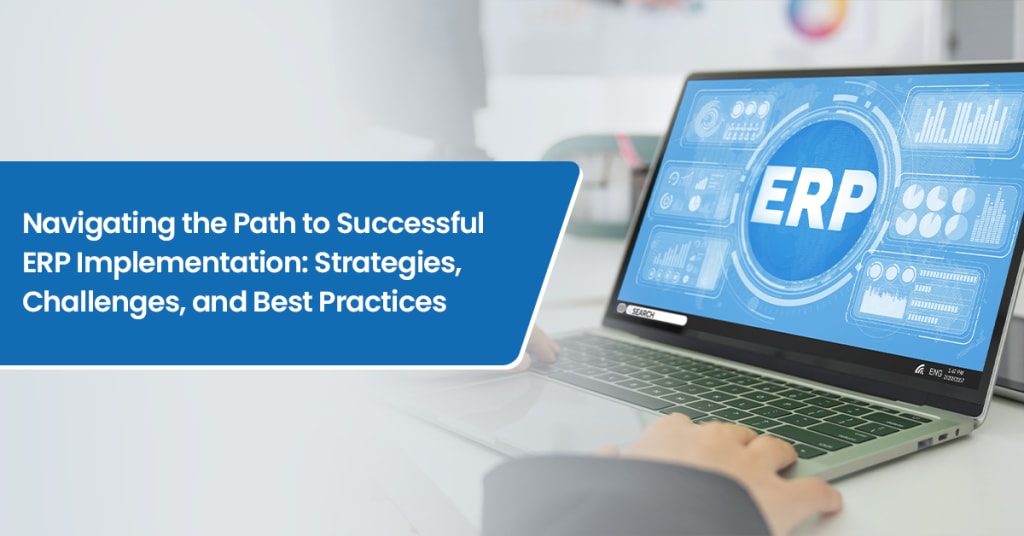Navigating the Path to Successful ERP Implementation: Strategies, Challenges, and Best Practices
Chaos engineering tools, chaos testing experts, chaos engineering services,

Enterprise Resource Planning software solutions have become the lifeline for enterprises to operate digitally and stay competitive. They help improve business productivity and efficiency by offering a centralized data source for all teams within the company. Additionally, business process automation may help eliminate a lot of duplication and red tape. To fulfill the needs of any expanding business, these software solutions must occasionally be upgraded. And driving ERP implementation can be a challenging exercise. The challenges could be the ERP system’s complexity, time involved in developing it, and cost.
Enterprise Resource Planning (ERP) systems have become the backbone of modern businesses. They help streamline processes, remove silos, enhance efficiency, and improve overall productivity. However, the journey to successful ERP implementation solutions is often challenging. This blog explores effective strategies, common challenges, and best practices to guide businesses in navigating the complex path to testing ERP systems.
Understanding ERP Implementation
Implementing any ERP center of excellence involves integrating various business functions and processes into a unified system. This enhances collaboration, automates routine tasks, and provides real-time insights. The process encompasses several stages, including planning, customization, training, and post-implementation support.
Effective Strategies for ERP Implementation
For ERP application testing services to succeed, businesses need to craft a series of robust strategies, as mentioned below:
Thorough Planning: Comprehensive planning is the foundation of successful ERP implementation. Businesses should conduct a detailed analysis of their existing ERP testing methodologies and processes, identify objectives, and establish a clear roadmap.
Selecting the Right ERP QA System: Choosing an ERP QA system that aligns with your business requirements is critical. Consider scalability, flexibility, industry-specific features, and vendor reputation.
Engage Key Stakeholders: Involving key stakeholders, including employees, managers, and IT experts, from the early stages fosters collaboration. It also ensures the chosen ERP solution meets the needs of various departments.
Customization and Integration: Tailoring the ERP system to match specific business processes is essential. Additionally, seamless integration with existing software applications and databases enhances data accuracy and accessibility.
Comprehensive Training: Proper training is vital to ensuring that employees can effectively use the new ERP system. Providing training sessions and resources tailored to different user roles facilitates the smooth adoption of an ERP quality assurance and testing solution.
Common Challenges in ERP Implementation
As mentioned earlier, developing an ERP validation system according to the latest needs of a business can be highly challenging. Let us discuss the challenges in the below-mentioned segment:
Resistance to Change: Employees might resist adapting to new technologies and processes, leading to reluctance to use the ERP system.
Insufficient Training: Inadequate training can result in employees not utilizing the ERP system to its full potential, limiting the expected benefits.
Data Migration Issues: Transferring data from legacy systems to the new ERP system can be complex and may lead to data inconsistencies if handled improperly.
Scope Creep: Uncontrolled changes or additions to project requirements during implementation can delay the timeline and inflate costs.
Lack of Post-Implementation Support: Inadequate support after ERP deployment can lead to unresolved issues, hindering the system's effectiveness.
Best Practices for Overcoming Challenges
To implement a robust ERP system, businesses need to follow the best practices as mentioned below:
Change Management: Implement a robust change management strategy to address employees' concerns and encourage active transition participation.
Comprehensive Training Programs: Develop tailored training programs and provide ongoing support to empower employees with the necessary skills to use the ERP system effectively.
Data Migration Planning: Thoroughly plan data migration, ensuring data accuracy, consistency, and security. Regularly validate migrated data to identify and address discrepancies promptly.
Project Scope Management: Establish a change control process to manage project scope effectively. Any changes should be carefully evaluated for their impact on the timeline and budget.
Post-Implementation Support: Provide continuous post-implementation support through help desks, dedicated support teams, and regular system evaluations. Address issues promptly through ERP software testing to maintain user confidence and system efficiency.
Conclusion
Successful ERP implementation requires meticulous planning, stakeholder engagement, practical training, and post-implementation support. By understanding the challenges and adopting best practices, businesses can navigate the complexities of ERP implementation and unlock the full potential of their integrated systems, driving growth and innovation in the digital age.





Comments
There are no comments for this story
Be the first to respond and start the conversation.